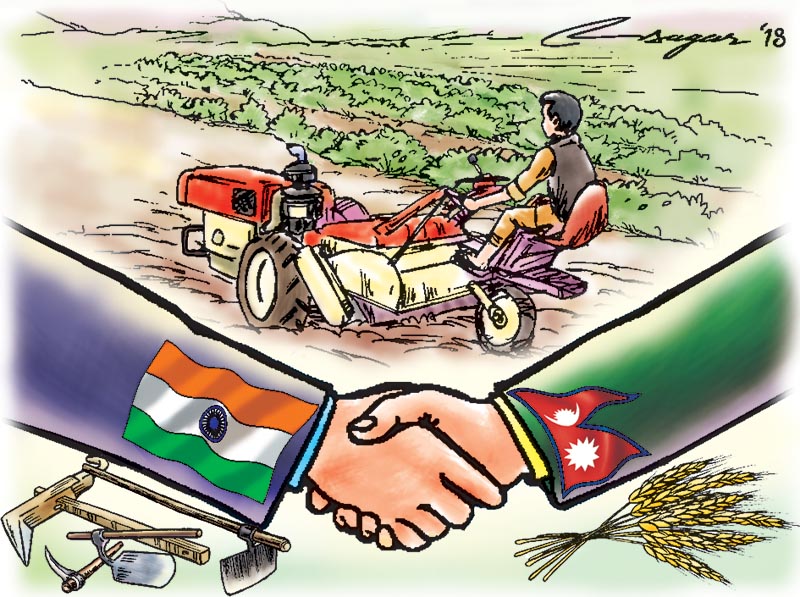Nepal wants zero-tariff facility on Indian agro goods dropped
Kathmandu, February 7
Indian authorities have sought details from Nepal on their call to levy customs tariff on Indian agricultural products and some other primary products.
Citing that the increasing import of Indian goods, especially agricultural products that are enjoying zero-tariff facility is increasing Nepal’s trade deficit with India and also affecting the market for Nepali goods, the Ministry of Industry, Commerce and Supplies (MoICS) had tabled the aforementioned agenda at the ongoing Nepal-India Trade Treaty review meeting being held in Pokhara between the commerce joint secretaries of the two countries.
However, the government is of the point that the Indian authority should give continuity to the zero-tariff export facility for previously listed Nepali products in the Indian market.
“Nepal’s trade deficit with India — the major trading partner — is widening every month. As a number of Indian goods enjoy duty free facility in Nepal and are also comparatively cheaper as Indian government has been providing different subsidies on their production, increasing import of such products is troubling our trade with India,” said Nabaraj Dhakal, joint secretary at MoICS, adding Indian authorities were positive towards those concerns.
Dhakal informed that Indian authorities at the meeting had sought details of Nepal’s agenda on levying duty on Indian goods that have been enjoying the zero-tariff facility in Nepal and expressed their commitment to discuss the issue with the Indian government.
Nepal and India had agreed to review the trade treaty along with the transit treaty and Railway Service Agreement between the two countries in April last year. The trade treaty was renewed in October 2016 without any changes to 2009 treaty.
Dhakal said that ending the zero-tariff facility for Indian agricultural goods and some other primary products would be crucial to reduce trade deficit gap between the two countries.
Similarly, he informed that discussions are also underway on ways to increase the penetration of Nepali goods in the Indian market through the trade treaty.
Nepal has also requested the southern neighbour for preferential treatment for export of agricultural products and integration of Nepali manufacturing units to its value chain at the meeting.
Similarly, the government has also raised the issue regarding the Indian authority imposing various additional taxes on Nepali goods against the Nepal-India Trade Treaty which has ensured zero-tariff export facility for such products in the Indian market.






